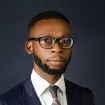- within Litigation and Mediation & Arbitration topic(s)
- in Nigeria
- with readers working within the Media & Information, Property and Law Firm industries
- within Litigation, Mediation & Arbitration, Insolvency/Bankruptcy/Re-Structuring and Finance and Banking topic(s)
Introduction
Garnishee Proceedings is one of the age-long methods of enforcing monetary judgments in Nigeria. It typically involves a judgment creditor applying to the court to attach the monies due or owed by the judgment debtor, which is in the possession of a third party known as the Garnishee. Garnishee proceedings are sui generis and distinct from the proceedings from which the judgment debt was granted. While the proceeding is quite straightforward, legal issues arise where the sum sought to be attached by garnishee proceedings is in the custody or under the control of a public officer in his official capacity or in custodia legis.1
The enforcement of such judgment debts has been mired in legal complexity and procedural hurdles, particularly with respect to obtaining the consent of the Attorney General under section 84 of the Sheriffs and Civil Process Act, 2004 (the "SCPA"). This provision appears to grant the Attorney-General some discretion to determine whether certain judgments of courts may be enforced against monies in custody or control of a public officer.
This requirement, often criticized as a statutory impediment to the enjoyment of judicial remedies, has been a recurrent subject of litigation and scholarly commentary. In a recent landmark decision, the Supreme Court in Central Bank of Nigeria v. Ochife et al. (2025) LPELR-80220 (SC) revisited the provision of section 84 of the SCPA.
This article critically examines the Supreme Court's reasoning in CBN v Ochife (supra), its implications for judgment creditors, and the broader impact on the enforcement of judgments against governmental and quasi-governmental bodies in Nigeria.
Legal Framework for Enforcement of Judgments Against Public Officers
Enforcement of judgments is generally governed by the SCPA.2 By section 84(1) of the SCPA "where money liable to be attached by garnishee proceedings is in the custody or under the control of a public officer in his official capacity or in custodia legis, the order nisi shall not be made under the provisions of the last preceding section unless consent to such attachment is first obtained from the appropriate officer in the case of money in the custody or control of a public officer or of the court in the case of money in custodia legis, as the case may be". Section 84(3) of the SCPA further defines the "appropriate officer" as the Attorney-General of the Federation or the Attorney-General of a State ("AG"), in relation to a public officer who holds a public office in the public service of the Federation or of a State, respectively.
Attempts have been made to proffer a rationale for the consent requirement under section 84 of the SCPA. In Onjewu v K.S.M.C.I (2003) 10 NWLR (Pt. 827) 40, the Court of Appeal held that "the rationale for the provision in section 84(1) of the Sheriffs and Civil Process Act for the previous consent of the Attorney- General before a court can validly issue a garnishee order nisi against funds in the hands of a public officer is to ensure that moneys that have been voted by the House of Assembly of a State for a specific purpose in the Appropriation Bill presented to that House and approved in the budget for the year of appropriation does not end up being the subject of execution for other unapproved purposes under the Sheriffs and Civil Process Act." It has also been put forward, that a rationale for the consent requirement lies in the need to save the AG the embarrassment of not knowing that funds earmarked for specific purposes have been diverted in satisfaction of a judgment debt which the government may not know anything about it. The question that then begs to be answered is whether the aforementioned rationale trumps the need to ensure that the efficacy of the courts are not subject to the whims and caprices of the AG.
Section 84 of the SCPA has been subjected to various interpretations, particularly in the light of its constitutionality, where the State or Federal Government is the judgment debtor. However, the prevailing judicial position is that the AG's consent is a condition precedent to garnishee proceedings against funds held by a public officer in an official capacity or in custodia legis. For example, in the case of CBN v Hydro Air Pty, 3 the Court of Appeal held that "Prior consent of the Attorney-General under section 84 of the Sheriffs and Civil Process Act is necessary and mandatory before the judgment of a court can be properly enforced against the State. Obtaining such a fiat is a condition precedent which must be complied with before a judgment creditor can enforce a judgment against the State, and the failure of a judgment creditor to obtain same robs the court of the jurisdiction over the judgment enforcement proceedings and renders the proceedings a nullity."
Similarly, in Osinene v. Commissioner for Agriculture Water Resources and Rural Development et al. 4 the Court of Appeal, in interpreting section 84 of the SCPA, held that "obtaining such a fiat from the Attorney General of the Federation is a condition precedent which must be complied with, before, the Respondent can commence their proceeding, and failure of the Respondent to obtain such necessary fiat from the Attorney-General robs the Court of the jurisdiction to entertain the action, and render the whole proceedings a nullity".
In CBN v. Interstella Communications Ltd, 5 the Supreme Court introduced a vital qualification to the requirement of obtaining the AG's consent under section 84(1) of the SCPA before attaching funds in the custody of a public officer. The Supreme Court held that consent is not required where the AG is not a nominal or neutral party, but is instead a principal actor in the proceedings, particularly where the AG himself is the judgment debtor. The Supreme Court reasoned and held that "The most potent factor which makes Section 84(1) of the SCPA inapplicable herein is because the Attorney-General is the debtor and has been sued in that capacity. With the AGF being the Judgment Debtor therefore, will it not be absurd to require that his consent should be sought especially having admitted that he had taken the move by paying part of the debt in question? The appellant's contention, understanding and interpretation of Section 84(1) of SCPA is a total misconception, I hold. The interpretation in my view would run against the application of natural justice, which could not have been the intendment of the legislature."
The Supreme Court in CBN v. Interstella Communications Ltd. (supra) concluded that a strict interpretation of section 84(1) of the SCPA in that case would offend the rules of natural justice and the doctrine of fairness and would enable the government to unjustly shield itself from enforcement of lawful debts. The Supreme Court's decision in CBN v. Interstella Communications Ltd. (supra) did not change the established position that, under section 84 of the SCPA, obtaining the AG's consent is a mandatory requirement before public funds can be attached, as the case was one of peculiar facts. It is for the above reason that we examine CBN v. Ochife (supra) in this article, where the Supreme Court appeared to adopt a different view on the constitutionality of section 84 of the SCPA.
CBN v. Ochife – Facts of the Case
The background to the case is that on October 10, 2018, the 1st Respondent obtained a monetary judgment in the sum of ₦50,000,000.00 (Fifty Million Naira) against the 2nd, 3rd, and 4th Respondents, namely the Inspector General of Police, the Commissioner of Police, FCT, and the Officer in Charge of the Intelligence Response Team, Special Anti-Robbery Squad (SARS), respectively (the "Judgment Debtors"). To enforce the judgment, the 1st Respondent initiated garnishee proceedings at the Federal High Court, Abuja, seeking to attach funds purportedly standing to the credit of the Judgment Debtors (2nd to 4th Respondents) with the Central Bank of Nigeria (the Appellant), pursuant to the Federal Government's Treasury Single Account ("TSA") Policy.
In response, the Appellant filed an affidavit to show cause, stating that the Judgment Debtors did not maintain any accounts with it. However, on the scheduled hearing date, the Appellant was absent from Court. The Trial Court proceeded to make the garnishee order nisi absolute, holding that the Appellant's affidavit to show cause had been filed out of time and no steps were taken to regularise it. Accordingly, the Court deemed the affidavit incompetent and disregarded its contents. In the absence of any opposition to the 1st Respondent's affidavit in support of the motion ex parte, the Trial Court held that the facts therein were unchallenged and proceeded to make the garnishee order absolute.
Aggrieved by this development, the Appellant appealed to the Court of Appeal, raising, amongst other things, the issue of the failure of the 1st Respondent to obtain the consent of the AG before commencing garnishee proceedings.
In its judgment, the Court of Appeal held that the Trial Court was in error in declaring Appellant's affidavit to show cause incompetent as the rules governing garnishee proceedings did not prescribe a time limit within which a garnishee must file its affidavit to show cause. However, the Court of Appeal rejected the Appellant's denial in its affidavit to show cause that it did not maintain any account for the Judgment Debtors. On the issue of the issue of the 1st Respondent's failure to obtain the consent of the AG, the Court of Appeal held that the Appellant, as a garnishee, cannot join the contest of the substantive litigants to fight a proxy war for the Judgment Debtors. Consequently, the Court of Appeal dismissed the appeal. The Appellant then further appealed to the Supreme Court.
CBN v. Ochife – Decision of the Supreme Court
The Supreme Court unanimously allowed the appeal on the ground that the Lower Court did not properly evaluate the affidavit evidence in the garnishee proceedings. The Supreme Court held that if the Lower Court properly evaluated the depositions of the 1st Respondent in the garnishee proceedings, it would have found that (a) they contained mere assertions, without specifics and (b) the assertion of the 1st Respondent that the Judgment Debtors have accounts with the Appellant under the TSA policy of the Federal Government of Nigeria was incorrect.
However, on the issue of the 1st Respondent's failure to obtain the consent of the AG under section 84 of the SCPA, the Supreme Court, in a majority decision delivered by Honourable Justice Habeeb Abiru, JSC, held that such issue pertains to procedural jurisdiction. As such, it must be raised at the earliest opportunity, and the failure of the Appellant to do so at the Trial Court amounted to a waiver of the right to rely on it. Hence, the Supreme Court struck out the grounds of appeal on this point. However, in a reasoned dissenting judgment, Hon. Justice Ogunwmiju, JSC held that the (I) issue was raised at the Trial Court but the Trial Court did not give a ruling on that point and (ii) Appellant was not challenging the jurisdiction of the Trial Court on the basis of the procedural rules in the Judgment Enforcement Rules but on the basis of the substantive law as provided for in section 84 of the SCPA, which can be raised at any time. As such, Hon. Justice Ogunwmiju, JSC made an express pronouncement on section 84 of the SCPA.
Pronouncement of the Supreme Court on Section 84 of the SCPA
In a reasoned judgment, the Supreme Court, per H. M. Ogunwumiju JSC distinguished the earlier decisions of the Court on the issue of requiring consent of the AG for the commencement of a valid garnishee proceeding against public officers, on the basis that those decisions were based on two statutory provisions: (i) section 84 of the SCPA and (ii) section 251(4) of the 1979 Constitution as amended or modified by the Constitution (Suspension and Modification) Decree No. 107 of 1993, and the 2nd Schedule (“1979 Constitution”).
To be sure, section 251(1)(2)(3) of the 1979 Constitution provides that:
“(1) The decisions of the Supreme Court shall be enforced in any part of the Federation by all authorities and persons, and by Courts with subordinate jurisdiction to that of the supreme Court.
(2) The decisions of the Federal Court of Appeal shall be enforced in any part of the Federation by all authorities and persons, and by Courts with subordinate jurisdiction to that of the Federal Court of Appeal.
(3) The decisions of a High Court, and of all other Courts established by this Constitution shall be enforced in any part of the Federation by all authorities and persons, and by other Courts of law with subordinate jurisdiction to that of the High Court and those other Courts, respectively.”
Further, section 251(4) of the 1979 Constitution provides that: “Notwithstanding the provisions of this section, no person shall enforce a judgment against a ministry or extra- ministerial department without the fiat Attorney- General of the Federation or the Attorney-General of a State whether or not he was, in either case, a party to the proceedings.”
H. M. Ogunwumiju JSC reasoned that section 251(4) of the 1979 Constitution was either omitted or never included in the Constitution of the Federal Republic of Nigeria, 1999 (as amended) (“1999 Constitution”) and that, as at the present time, there is no decision of the Supreme Court interpreting section 84 of the SCPA in relation to the relevant provisions of the 1999 Constitution.
In interpreting section 84 of the SCPA, the learned Justice, amongst other things, held that “I cannot agree that the embarrassment to government where government money is claimed by a judgment creditor is sufficient reason for a single functionary of the Executive arm at the State (AG) or Federal (AGF) level to supervise the judiciary which is the obvious implication of Section 84 of the S&CPA. One must rue the day and shudder at the spectre of a monetary judgment of the Supreme Court of Nigeria being subject to the supervision of the AG or AGF pursuant to Section 84 of the S&CPA. It detracts from Section 287 which imposes a duty on all authorities and persons to enforce the decisions of the Court and also creates a mandatory duty on the office of the AGF and other persons and institution to automatically enforce the judgment of Courts unless there is a stay and an appeal against that judgment. In the comity of nations, it is more embarrassing for the judiciary of Nigeria to be seen as a toothless bulldog whose judgment can be ignored at the will of the executive.“
Consequently, H. M. Ogunwumiju JSC held that section 84 of the SCPA which places the enforcement of monetary judgments at the discretion of the AG is inconsistent with sections 6(6)(b) and 287 of the 1999 Constitution, which vest judicial authority in the courts and impose a duty on all persons and authorities to comply with and enforce court judgments. Accordingly, the learned justice struck down section 84 of the SCPA for being inconsistent with sections 1, 3, 6 and 287 of the 1999 Constitution. However, H. M. Ogunwumiju JSC's decision to strike down section 84 of the SCPA was not a majority decision of the Supreme Court, and at best, qualifies an obiter.
Conclusion
In our view, the pronouncement of the Supreme Court, per H. M. Ogunwumiju JSC, on section 84 of the SCPA in CBN v. Ochife (supra), albeit not a binding precedent, represents a critical and potential shift in the right direction. We strongly agree with the pronouncement that the enforcement of court judgments should never be subject to the consent of a single individual or office, no matter how highly placed. Section 84 of the SCPA, by requiring the AG's consent before enforcing monetary judgments against government bodies, undermines the authority of the courts and runs contrary to provisions of sections 6(6)(b) and 287 of the 1999 Constitution.
We believe that the decision in CBN v. Ochife (supra) reflects a breaking point for subsequent cases to be argued before the Supreme Court on the applicability of section 84 of the SCPA, and a strong indication of a potential shift away from the outdated notion that the enforcement of monetary judgment against public officers can be subject to the whims and caprices of government executives. The Courts must in the interpretation of section 84 of the SCPA adopt a progressive approach which preserves and allows them exercise their constitutionally guaranteed judgment enforcement powers without unnecessary delay.6 The attempt by Ogunwumiju JSC to prevent the injustice that may arise from the strict application of section 84 is quite commendable. It is expected that the Supreme Court will have the opportunity to resolve this issue in the not too-distant future.
Footnotes
1. Meaning "in custody of law."
2. Item 57 of the Exclusive Legislative List of the 1999 Constitution of the Federal Republic of Nigeria (as amended). Nig. Gen. Ins. v. Bello (1994) 1 NWLR (Pt. 319) 207
3. (2014) 16 NWLR (Pt. 1434) 482
4. CA/C/5Q/2001 (Unreported)
5. (2018) 7 NWLR (Pt. 1618) 294 at page 345, paras. F – H
6. Chimezie Onuzulike, ‘An Analysis of the Consent Requirement of Section 84 of the Sheriff and Civil Process Act 2004 and the Judgment Enforcement Powers of Courts.' The Gravitas Review of Business & Property Law, June 2020, Vol 11, No. 2, pg 31-32
The content of this article is intended to provide a general guide to the subject matter. Specialist advice should be sought about your specific circumstances.





